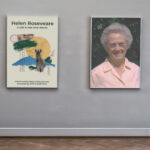Last May, I published an article called “Should I Be Content with My Singleness?” that began, “I am 33 and single. I have wanted to be married for as long as I can remember.” The gist of the piece was that sometimes God gives us desires that won’t be fulfilled in this life. Living with those unmet desires allows us to embody a picture of the church, the bride of Christ, who waits for her bridegroom without knowing when he will return.
The piece was a culmination of years of wrestling with my singleness. As I increasingly suspected that it would be lifelong, I grew hopeful that I could nevertheless be a living metaphor of the church waiting for her bridegroom, recognizing that I might be one of those mentioned in Hebrews 11:13 who “died in faith, not having received the things promised, but having seen them and greeted them from afar.”
I knew that God could provide me with a husband, even though there was absolutely no prospect on the horizon. I wrote in the article,
If God ever gives me a husband, I will live out this picture of rejoicing in the long-awaited bridegroom. We’ll have a wedding feast, which will foreshadow the marriage supper of the Lamb (Rev. 19). The purpose in my season of singleness will be obvious to everyone who shares in my rejoicing; it was to make the consummation all the sweeter.
When I wrote those words, although I knew that it could happen, I didn’t think that it would. I am very happy to be wrong.
On May 23, 2014, the day after my article was published, I received an email from a pastor in Manhattan. He didn’t hit on me, he just thanked me for the article. A quick Google search revealed that he was single, originally from London, a Jewish Christian, and, not incidentally, quite handsome. I was intrigued. I wrote back, and we started corresponding. After a week of emailing, he suggested that we Skype. We talked for a couple of hours that first Skype, and at the end of our conversation, he asked in his elegant British accent if he could fly down to Alabama and take me on a date.
On Thanksgiving Day, Bernard Nicholas Howard asked me to marry him. We were on a screened-in porch at my great-grandparents’ farm. Somehow this tall, dashing British pastor had found his way to me in Alabama and ended my wait for a bridegroom. We are eagerly awaiting our wedding on May 23, a year after he first wrote to me. Our friends and family will feast with us. The wait—for him 39 years, for me 34—has made finding each other even sweeter.
Mission accomplished, right? Wrong. Marriage was not the object of my article, and my singleness wasn’t a problem to be solved. The object of my life is to glorify God and enjoy him forever. Singleness gave me opportunities to live for God’s glory. As a single woman longing for marriage, I lived as a picture of the way the church should wait in hope for the return of Christ. As a married woman loving my husband, I hope to live as a faithful picture of the church submitting to the headship of Christ.
It felt like my situation turned on a dime. I woke up one morning with no marital prospects, and I went to bed wondering about a handsome British preacher. My life will never be the same.
Your life could change in a blink of an eye. I’m not talking about meeting the love of your life; I’m talking about meeting the one who loved you and gave himself up for you, who went away and promised to come again. Jesus Christ may return at any moment. No one knows the day or hour, so we must always watch and pray. When the wait gets long, you may start to think he’s not coming. But one day, he will appear. Amen. Come, Lord Jesus.
Download your free Christmas playlist by TGC editor Brett McCracken!
 It’s that time of year, when the world falls in love—with Christmas music! If you’re ready to immerse yourself in the sounds of the season, we’ve got a brand-new playlist for you. The Gospel Coalition’s free 2025 Christmas playlist is full of joyful, festive, and nostalgic songs to help you celebrate the sweetness of this sacred season.
It’s that time of year, when the world falls in love—with Christmas music! If you’re ready to immerse yourself in the sounds of the season, we’ve got a brand-new playlist for you. The Gospel Coalition’s free 2025 Christmas playlist is full of joyful, festive, and nostalgic songs to help you celebrate the sweetness of this sacred season.
The 75 songs on this playlist are all recordings from at least 20 years ago—most of them from further back in the 1950s and 1960s. Each song has been thoughtfully selected by TGC Arts & Culture Editor Brett McCracken to cultivate a fun but meaningful mix of vintage Christmas vibes.
To start listening to this free resource, simply click below to receive your link to the private playlist on Spotify or Apple Music.


































